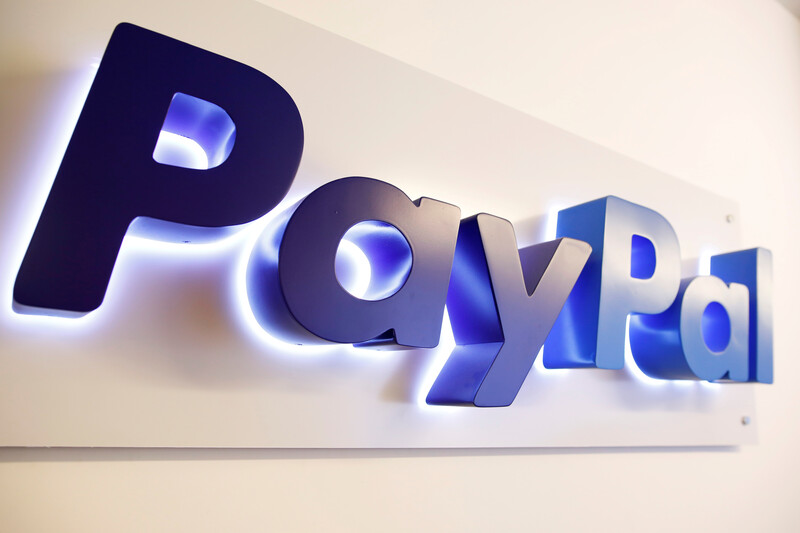Lobby Watch 2 August 2021

PayPal is partnering with the Anti-Defamation League, a major Israel lobby group, to investigate how “extremist and hate movements” use financial tools to fundraise.
The partnership with PayPal is being managed through the ADL’s so-called Center on Extremism, which markets itself as “a leading authority on extremism, terrorism and hate.”
This could mean that financial tech giant PayPal is letting the ADL, with its lengthy history of spying on human rights activists, dictate what is and what is not “extremism” with no clear indication that this process will be transparent or accountable.
And with the lobby group’s wide-ranging efforts to label support for Palestinian rights as a form of anti-Jewish bigotry, this could be yet another way that the private sector can censor and impede anti-racist activists in order to shield Israel.
“Palestinian and Muslim political speech is often smeared as ‘extremist,’ or hateful via the overbroad definition of the anti-Semitism label, and the ADL has been at the helm of some of those efforts,” Diala Shamas, staff attorney with the Center for Constitutional Rights, told The Electronic Intifada.
The ADL masquerades as a civil rights group while systematically undermining social justice movements and repeatedly denouncing Black activists for expressing support for the Palestinian liberation struggle.
The group regularly inserts itself into corporate and public school “anti-bias” trainings while mainstreaming anti-Muslim hatred and disparaging Palestinian, Muslim and Arab community organizations.
But the PayPal-ADL relationship is fitting, since both have long been hostile to supporters of Palestinian rights.
PayPal, and its subsidiary Venmo, have a record “of restricting transactions and blocking certain accounts without offering meaningful process to challenge that block,” Shamas said.
“Often, by the time the issue is addressed, it has already been disruptive. The partnership with the ADL is likely to only increase this trend,” she warned.
The information gathered by this partnership “will be shared broadly across the financial industry” as well as with police and lawmakers, the ADL advertises.
While purporting to be an ally of the Black Lives Matter movement, the ADL has long boasted about its close ties with top levels of US law enforcement.
The ADL regularly sends US police leaders on junkets to Israel for training in “intensive counter-terrorism” tactics.
In 2020, more than 100 leading civil rights and social justice groups around the US called on allied organizations to drop partnerships with the ADL.
Shamas said that as a group hostile to advocacy for Palestinian rights and other progressive causes, the ADL “should not be the arbiter of what is ‘hateful’ or ‘extremist’ for a private corporation.”
Palestinian rights advocates, “especially in this moment as they face unprecedented efforts to suppress their voices, are particularly dependent on fundraising through these online payment platforms,” she noted.
Rebranding
The partnership with PayPal aims “to fight extremism and protect marginalized communities,” the ADL insists.
But Emmaia Gelman, a researcher and activist, told The Electronic Intifada that the ADL’s use of progressive terminology is a well-worn rebranding tactic.
“The way they use the language of security and [human] rights is very familiar,” Gelman said.
“They take this language that comes from left and progressive demands for things to be fair, and they turn it into corporate and capital uses,” she said.
“It aligns very well with the ADL to take the language of rights and repurpose it for what they’re trying to do.”
Gelman added that the ADL has been engaging with major Silicon Valley corporations to do “tech justice” work.
“Their Center on Extremism is no longer necessarily researching white supremacists, but entering into these partnerships with big tech companies – those are the spaces where it’s able to animate anti-hate language,” Gelman noted.
Once the ADL “has entered the mesh of that power structure,” Gelman worries, “it’ll be hard to get it out.”
Monitoring who?
The ADL’s partnership with PayPal is just one of several it announced in July.
The lobby group is also teaming up with the Union of Reform Judaism “to launch an anti-Semitism reporting tool that both the ADL and URJ will monitor,” according to Israel’s Haaretz newspaper.
In what looks like another ADL public relations move, the announcement came “amid criticism from the left that the group too freely identifies criticism of Israel as anti-Semitism,” the newspaper added.
The ADL has indeed spent many years working to craft and endorse legislation that would label criticism of Israel as anti-Semitic, especially on college campuses.
The lobby group says it will work with the Union of Reform Judaism and offer resources to tally acts of anti-Jewish bigotry, which could be added to the ADL’s annual “Audit of Anti-Semitic Incidents.”
But what it considers “anti-Semitic incidents” could be yet another opportunity to promote its goals.
In a recent report, for example, the lobby group claimed that there was a sharp uptick in acts of anti-Jewish bigotry around the same time that Israel began massacring Palestinians and flattening homes and buildings in Gaza in May.
However, the group has not substantiated many of these claims.
“The ADL counts anonymous complaints about media coverage as anti-Semitic incidents, along with pretty much any unsubstantiated allegation anyone registers, then compiles them, howls about a ‘wave of antisemitism,’ and uses the hype to fundraise,” said Max Blumenthal of The Grayzone.Notably, the ADL has helped lead a relentless smear campaign against the boycott, divestment and sanctions (BDS) movement for Palestinian rights.
And it recently praised the Biden administration for sending more US taxpayer money to Israel’s lethal military apparatus.




